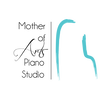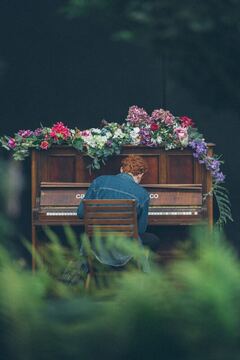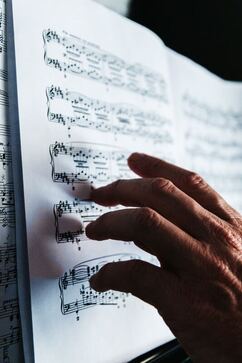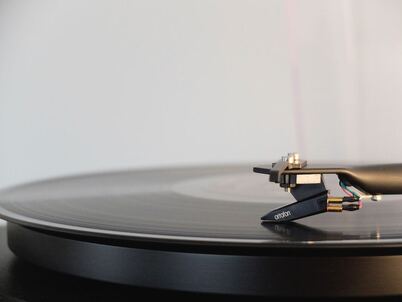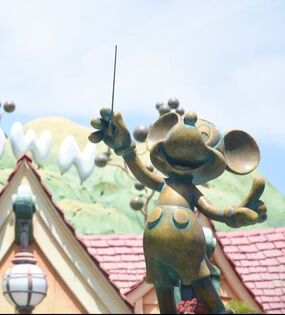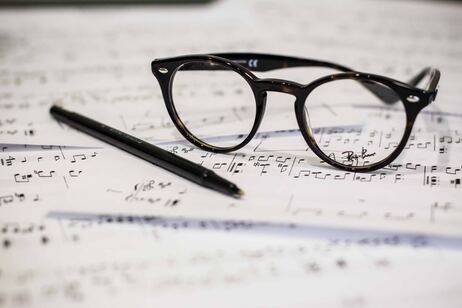Workshops for students
|
Mother of Arts Piano Studio takes advantage of school breaks over holidays, offering 5-day workshops which enhance children's musical and cognitive abilities. This time is dedicated to activities such as improvisation, composition, conducting, as well as enhancing knowledge already acquired during their piano lessons such as theory and ear training. These workshops welcome all music students, whereas Mother of Arts students can attend for a much smaller fee.
|
|
Improvisation is an excellent way for children to explore both the instrument and the way in which different sounds interact. They can experiment with one or more notes, they can test combinations and they can add coherence to a series of notes by employing rhythm. We use improvisation in some of our lessons, but frankly, there is not always time to include it in every lesson.
This 5-day workshop can spark creativity, stimulate curiosity and provide a deeper understanding of how to navigate sound to create, express and replicate emotions, thoughts and ideas through music. Besides, sitting at the piano and just playing can be so much fun! |
Here’s the truth about sigh-reading: piano students can get by without it. It comes more easily to some than it does to others. Some people seem to be born with the ability to do it and for some it takes a lot of work. That being said, sight-reading can be taught and it should be taught, because without it, musical life is much harder. Learning pieces takes much longer, and playing music is not as fun.
Even though it seems to be a kind of innate talent, there are strategies that can be adopted which can lead anyone to acquire significant skills in sight-reading. These are the strategies we deal with in this 5-day workshop, to help our students develop this musical life-changing gift! |
It goes without saying that the most important skill to develop for music, is listening. Well, it should go without saying. It makes sense. However, learning to play any instrument requires us to focus on so many different tasks simultaneously that most students (at times even some performers) forget to listen. At our studio, ear training is part of every lesson. However, we find that it is sometimes useful to dedicate more attention and time to this specific skill, to help our students progress deeper into mastering it. This 5-day workshop aims to do just that through the use of games, exercises, recordings and even apps.
|
|
An orchestra is the sum of its players, guided by a conductor whose job it is to shape the musical outcome by setting the tempo, ensuring that each instrument enters in time, indicating dynamics (volume); the conductor is the one who will add expressive details to the performance, they are even the one who decides on the repertoire and leads the learning process in rehearsals. The conductor unifies the different players in the orchestra, resulting in a large group of people working as one.
In the process of playing the piano, each pianist simultaneously takes on the role of each instrument and section of the orchestra, as well as that of the conductor. In this 5-day workshop, music students learn basic conducting techniques which they then use to lead their teacher or their classmates in the performance of a piece of music. This is a useful skill to acquire as it gives young musicians the opportunity to focus on all aspects of music without actually having to perform it, thus creating a deeper understanding of the musical, rather than the technical, angle of the work. |
There is something very special about taking things apart and trying to put them back together. It helps us realise how things work, what they are made of, how different things interact together to make a whole. This works for machines, but it also works for music. During our lessons, our students learn a lot about the parts that make up music. They learn how to “take apart” a musical piece, explore all of its parts and then put them back together to play it as a whole.
Musical composition makes use of these parts to create something new. Like a set of Lego blocks, we can follow the instructions on the box to make whatever the designers decided we could make, or we can completely disregard it to create something completely new, something which is our own. This creates a deeper connection with our creation, but it also offers a deeper understanding of how all of these building blocks can work together, how they relate to each other and how, when they are all put together, the whole far exceeds the sum of its parts. Also, it’s a lot of fun! |
Workshops for teachers
|
